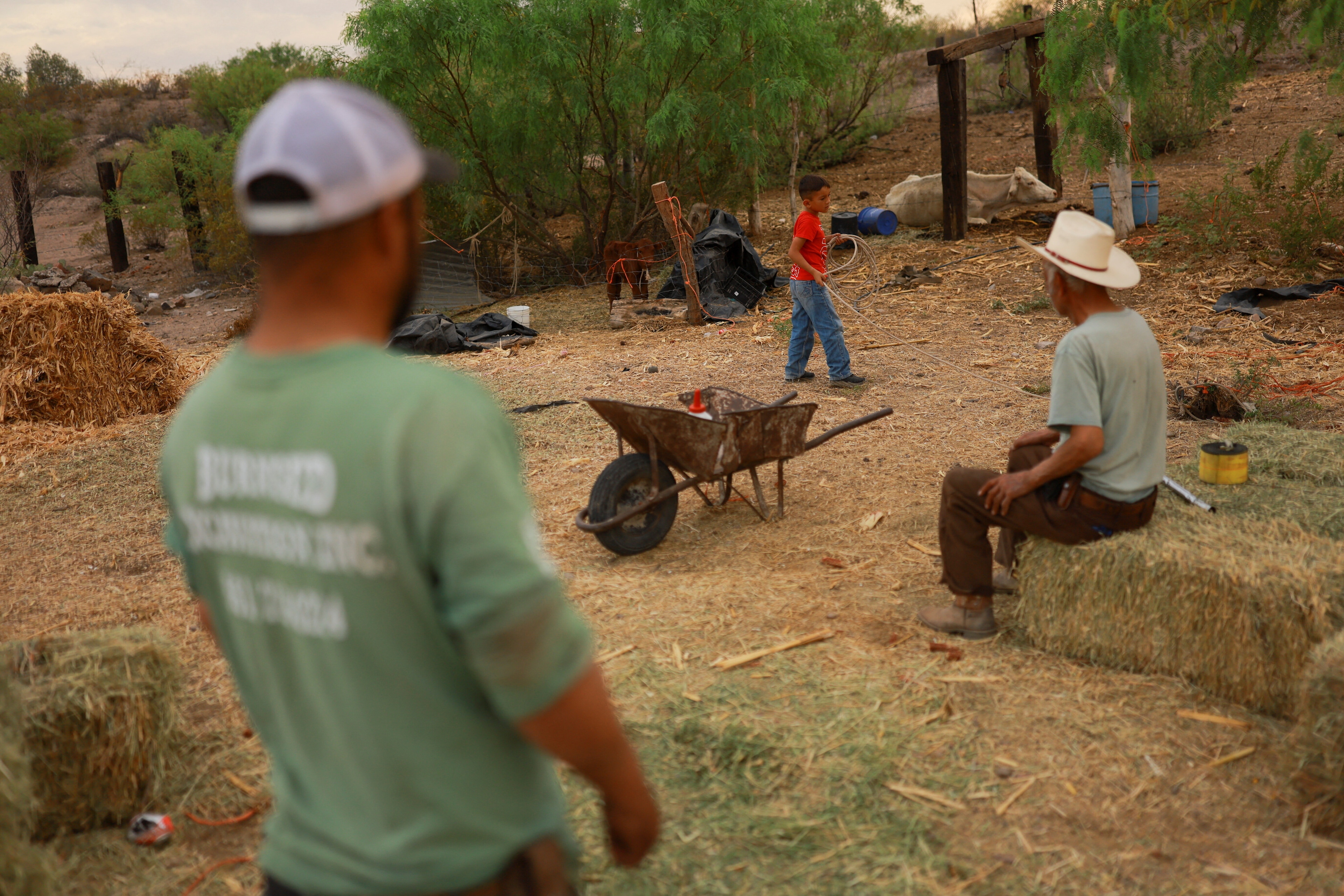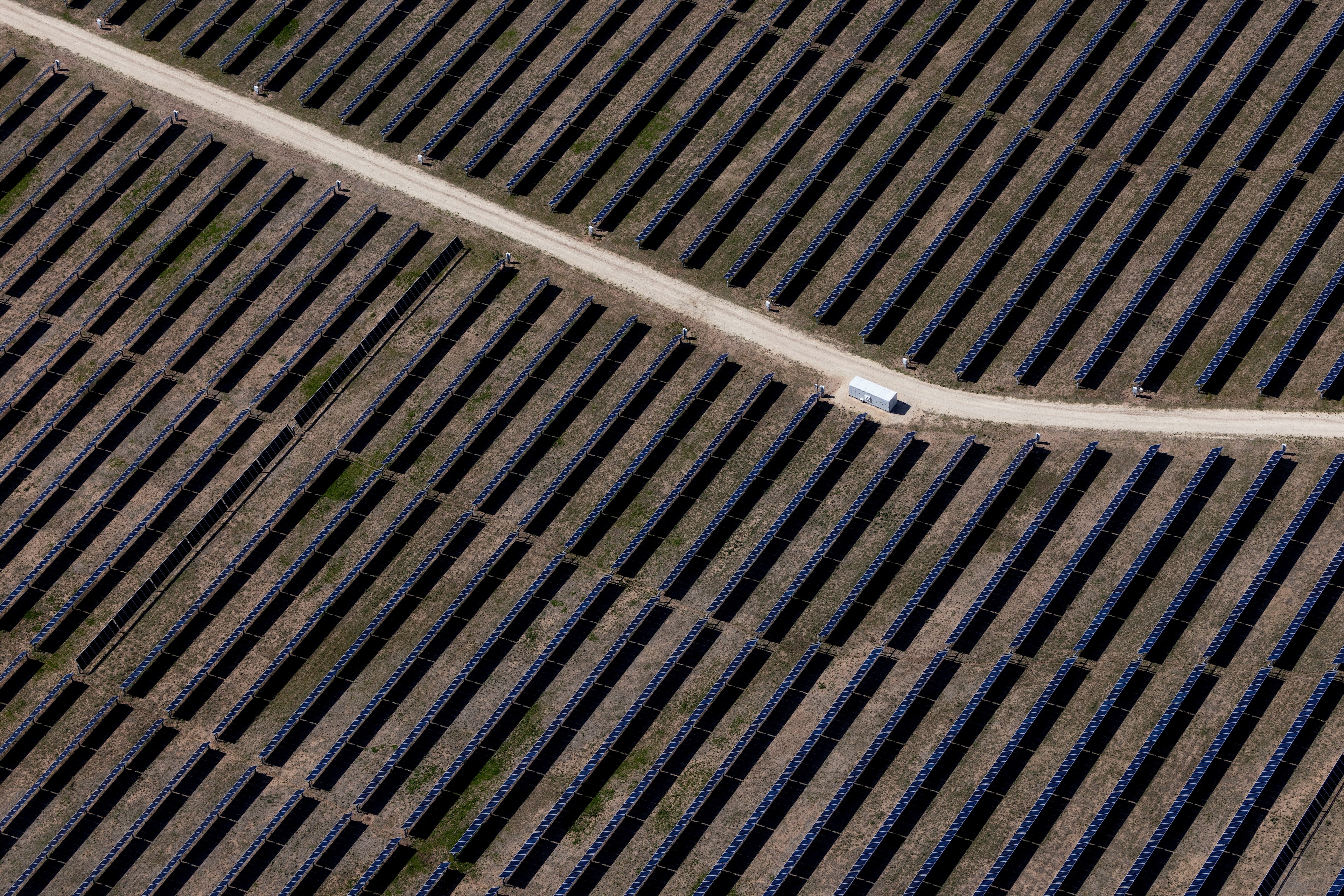These scientists are making antibacterial bandages out of fruit waste

The organo-hydrogel bandages are also able to keep wound areas cooler and moist, which can help accelerate healing.
Image: Reuters/Lee Ying Shan
Stay up to date:
Innovation
- Scientists at Nanyang Technological University in Singapore are transforming discarded durian husks into antibacterial gel bandages.
- The process extracts cellulose powder from the fruit's husks after they are sliced and freeze-dried.
- The husks, which make up more than half of the composition of durians, are usually discarded and incinerated, contributing to environmental waste.
Scientists at Nanyang Technological University (NTU) in Singapore are tackling food waste by turning discarded durian husks into antibacterial gel bandages.
The process extracts cellulose powder from the fruit's husks after they are sliced and freeze-dried, then mixes it with glycerol. This mixture becomes soft hydrogel, which is then cut into bandage strips.
"In Singapore, we consume about 12 million durians a year, so besides the flesh, we can't do much about the husk and the seeds and this cause environmental pollution," said Professor William Chen, director of the food science and technology programme at NTU. The fruit's husks, which make up more than half of the composition of durians, are usually discarded and incinerated, contributing to environmental waste.

Chen added that the technology can also turn other food waste, such as soy beans and spent grains, into hydrogel, helping limit the country's food waste.
Compared to conventional bandages, the organo-hydrogel bandages are also able to keep wound areas cooler and moist, which can help accelerate healing.
The researchers say using waste materials and yeast for the antimicrobial bandages is more cost effective than the production of conventional bandages, whose antimicrobial properties come from more expensive metallic compounds like silver or copper ions.
A durian wholeseller, Tan Eng Chuan, said he goes through at least 30 crates of durians a day during durian season - as much as 1,800 kg. Being able to use the parts of the fruit that are ordinarily discarded, he said, was an innovation that would make enjoying it "more sustainable".
Accept our marketing cookies to access this content.
These cookies are currently disabled in your browser.
Don't miss any update on this topic
Create a free account and access your personalized content collection with our latest publications and analyses.
License and Republishing
World Economic Forum articles may be republished in accordance with the Creative Commons Attribution-NonCommercial-NoDerivatives 4.0 International Public License, and in accordance with our Terms of Use.
The views expressed in this article are those of the author alone and not the World Economic Forum.
Related topics:
Forum Stories newsletter
Bringing you weekly curated insights and analysis on the global issues that matter.
More on Food and WaterSee all
Jose Ignacio Galindo and Nicolas Wertheimer
July 24, 2025
Arunabha Ghosh and Jane Nelson
July 22, 2025
Tom Crowfoot
July 8, 2025
Duncan Wood
July 8, 2025



